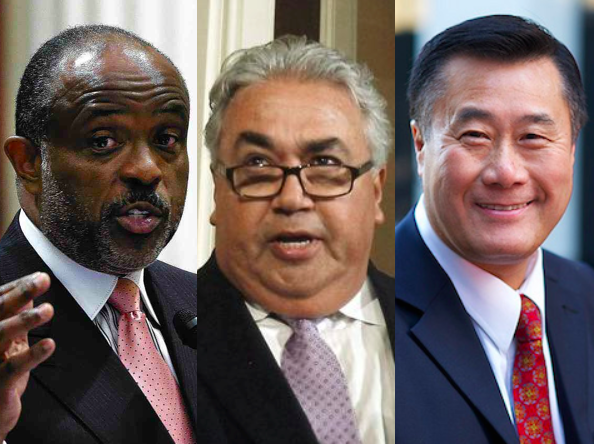Today marks the beginning of the California legislature’s first self-imposed month-long fundraising ban. Ostensibly, it has been put into place to give voters confidence that the legislature is above reproach when it comes to ethical standards.
However, the fundraising ban has actually just been adopted by only half of the legislature–the State Senate. There was legislation that passed out of the Senate that would have applied fundraising “blackout periods” to both chambers. Apparently legislators in the Assembly wanted no part of it.
Passed as an internal Senate rule, the ban provides that Senators shall “not solicit or accept, a contribution from a lobbyist employer during the following periods” and goes on to specify those periods: when budget negotiations are taking place, and the end of legislative sessions–i.e. the “crunch time” when most legislation is up for final consideration.
This so-called fundraising ban is really just window dressing. It was adopted as a political measure, to send a message to voters in an election year that members of the State Senate are an ethical lot, and that the public should not jump to any conclusions just because three Senators are in the middle of criminal scandals.
Earlier this year, in January, State Senator Rod Wright (D-Inglewood) was successfully prosecuted by the Los Angeles County District Attorney, and found guilty of eight felonies, including voter fraud and perjury. Wright continues to hold his office, and to draw a salary. A request from a handful of Republican Senators calling for a vote to expel Wright was bottled up by Senate President Darrell Steinberg, never to see the light of day.
Just a few weeks later, in late February, Senator Ron Calderon (D-Montebello) was indicted by federal prosecutors on 24 different felony counts, including bribery, money laundering and tax evasion. Calderon continues to serve as a State Senator, drawing a salary.
Just one month later, Senator Leland Yee (D-San Francisco) was indicted by federal prosecutors and charged with conspiracy to traffic in firearms without a license and to import firearms illegally, as well as six counts of scheming to defraud citizens of honest services. Just last week prosecutors added more charges against Yee, including racketeering. Yee continues to serve as a State Senators, drawing a salary.
It is pretty clear to the average observer that the right thing for these three Senators to have already done would have been to resign their offices, which they each chose not to do. But it is equally clear that the right thing for the State Senate to do would be to remove these three ethically challenged politicians from their offices of public trust.
Serving in the legislature is a privilege, and it should be clear to the 37 unindicted Senators, who should all take the time to read their colleagues’ indictments, that whether, in the cases of Calderon and Yee, the Senators are found guilty or not under the appropriately high standards in a court of law, they have obviously conducted themselves in a manner not fitting to hold legislative office. Of course Wright has already been found guilty, and while his crimes may pale in comparison to those alleged against Calderon and Yee, his still being a Senator is the most egregious situation.
The State Senate cast a vote to “suspend” Calderon, Wright and Yee–which again appears to be window-dressing to mask the failure of the Senate to expel these members, especially in the case of Wright, whose term does not expire until 2016. In all three cases, there are millions of Californians left with no representation in the State Senate. So in addition to all of the direct victims of their acts, these Senators have now made indirect victims out of all of the people that they were elected to represent.
The new fundraising blackout periods were obviously written to have the maximum amount of positive public relations impact,and the minimum inconvenience to business-as-usual. Not only are the blackout periods limited, but the ban itself only applies to raising funds from a lobbyist-employer, i.e. companies and interests that have hired a lobbyist.
Needless to say that are many, many interest that can and do write checks to legislators and that are not represented by lobbyists. And, of course, the special interests around the Capitol probably can figure out how to make all of the same campaign donations they would have made over the next 30 days in, say… 31 days.
Instead of focusing on fig-leaf measures designed for public relations impact, Senators should bring Calderon, Wright and Yee up for expulsion votes. The three can make their case: they are allowed due process. And then Senators can really show if they want to reject the notion that their institution has a culture of corruption.

COMMENTS
Please let us know if you're having issues with commenting.